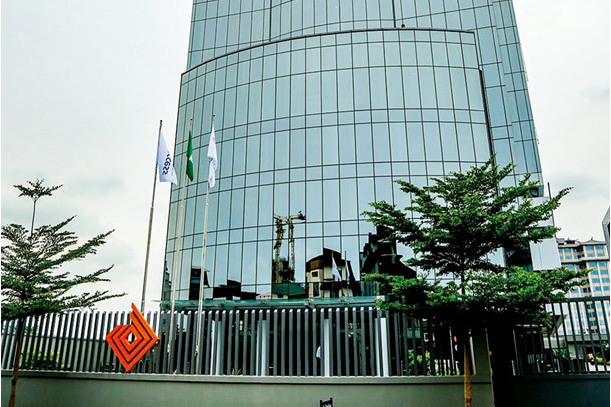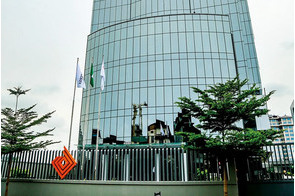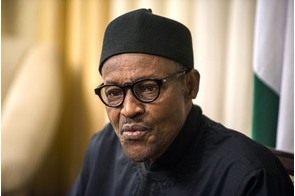Eliminating inequality as a sustainable development challenge in Africa

Summary
Access Bank remains a pioneer in the ideation and execution of several sustainability drivers that foster equity and aim at ensuring no African is left behind.
Inequality is a major stumbling block to the sustainable socio-economic growth and development of many nations. Inequality is a challenging social problem to solve because it is associative and multidimensional, affecting people in several socio-economic spheres.
The 10th Sustainable Development Goal (SDG 10) aims at minimising, by 2030, inequalities based on income, sex, age, gender, disability, race, class, sexual orientation, religious beliefs, ethnicity, and opportunity. As with many other regions of the world, Africa is grappling with inequality and disparity in unique ways.
Social inequality in Africa is driven by discriminatory practices and disparities in access to opportunities. It is often responsible for differences in development outcomes, for example in education, employment, and healthcare. These practices and outcomes consequently affect the economic fortunes of individuals and households.
According to the 202F1 Global Wealth Report, published by the Credit Suisse Research Institute, 45.8 percent of global household wealth is owned by just about 1.1 percent of the world’s population. The global humanitarian organisation World Vision says there are over 689 million people in the world living in extreme poverty.
Apart from existing among people, inequality also exists among nations. However, in order for countries to thrive, the citizens need to have equal access to opportunities, regardless of age, gender, tribe, religious beliefs, or socio-economic status. The prosperity of African countries, and indeed countries of the world, hinges on the prosperity of their citizens.
Social and economic inequalities are strongly interconnected. For instance, people with wealth or high social status predominantly have access to privileges in society that are inaccessible to people in lower incomes brackets. An individual’s level of economic fortune often influences socio-economic metrics such as social standing, access to quality healthcare and education, grade of available opportunities, and even political affiliation and level of participation.
Given the devastating impacts of inequality on people and the society, the United Nations has enumerated 10 targets for reducing inequality within and among countries of the world. Public and private sector stakeholders in Africa should, therefore, initiate and support programs and actions to implement the targets, which are progressively achieve and sustain income growth of the bottom 40 percent of the population at a rate higher than the national average by 2030; empower and promote social, economic and political inclusion; ensure equal opportunity and reduce inequalities of outcome; adopt policies, especially fiscal, wage and social protection policies, and progressively achieve greater equality; and improve the regulation and monitoring of global financial markets and institutions.
The others are ensure enhanced representation and voice for developing countries in decision-making in global international economic and financial institutions; facilitate orderly, safe, regular and responsible migration and mobility of people; implement the principle of special and differential treatment for developing countries in accordance with WTO agreements; encourage official development assistance and financial flows to States where the need is greatest; and reduce transaction costs for migrant remittances.
Inequality reduction strategies that will attain success have to be multilayered or multifold and will have to address concerns in several important economic sectors. While public bodies have critical roles to play, it is imperative for private organisations to acknowledge their corporate social responsibility (CSR) towards the communities where they operate and contribute their quota towards achieving SDG 10 in Africa. Fortunately, many future-thinking private institutions in Africa have the core of their business operations guided by sustainability principles and are showing increasing commitment to innovative schemes aimed at eliminating inequality on the continent.
A poignant example of such private organisations is Access Bank Plc., a top-tier institution serving as Africa’s payments gateway to the world. Access Bank remains a pioneer in the ideation and execution of several sustainability drivers that foster equity and aim at ensuring no African is left behind.
Playing its part in emphasizing female empowerment and eliminating gender disparity, the Bank launched the “W” Initiative, a first-of-its-kind enterprise that paved the way for women to access finance in several African countries where Access Bank operates. The “W” Power Loan has been a catalyst for female empowerment across Africa, with loans worth a total of over $30 million disbursed to women for asset acquisition, infrastructure upgrades, and working capital for their businesses. The initiative continues to provide women with banking solutions tailored to meet their lifestyle and career requirements as well as connect them to national and international opportunities.
Several Access Bank-funded schemes have lowered educational disparities by providing digital learning opportunities for the youth in underdeveloped communities. The Bank’s Sustainability unit was responsible for the first SDGs–Fintech Hackathon in Nigeria, a program that provided new avenues for the youth in the country to localise the SDGs, catalyse purpose-driven interactions, and systematically increase the youth-led drive towards the attainment of the SDGs through the development of innovative Fintech solutions.
Due to widespread closure of schools during the initial period of the Covid-19 pandemic, children (with and without disabilities) lacked access to assistive technology for learning. In response to the need to drive equitable and inclusive education, Access Bank introduced an online financial literacy platform – Access 9ijaKids – for children at zero cost during the compulsory stay-at-home period. The program impacted over 100,000 children and parents with financial literacy education; over 1,700 children played the games; and more than 150 children were rewarded.
In today’s world, inequality not only erodes our collective efforts to achieve economic growth, reduce poverty and increase social mobility, but it also increases political tension, and all too often fuels conflict and instability. It is imperative that there is an understanding that development is not sustainable if people are excluded from opportunities and services that can provide them the chance for a better life.
Reducing inequalities within and across African nations is imperative for the continent’s advancement. It can also be a catalyst for the achievement of other SDGs. Reducing inequalities will lead to increasing social and economic cohesion, which is a key factor in alleviating poverty, promoting peace, ensuring access to basic social services such as education and healthcare, while also fostering economic growth and the overall protection of human rights.
With organisations like Access Bank setting a good example for both governmental and private stakeholders with initiatives aimed at promoting socio-economic equity, the achievement of SDG 10 in Africa by 2030 may just be realisable.
Access Bank Sustainability Unit is responsible for driving sustainability at the bank.
Related
-
Kuwaiti fund for African Development opens call for nominations
The $1 million Al-Sumait Prize rewards innovative and inspiring initiatives and research.
-
Strengthening the three most important socio-economic pillars
Strategic focus needs to be placed on the three pillars that have the ability to have a massive, positive impact on the ...
-
Nigeria among worst-performing nations on World Bank's Human Capital Index
The Human Capital Index measures how much countries lose in economic productivity by underinvesting in their people.







